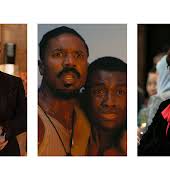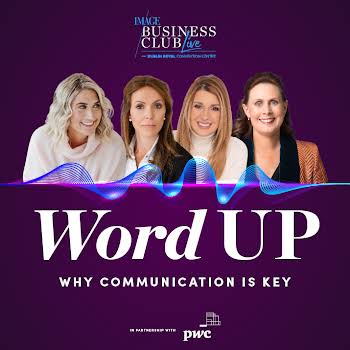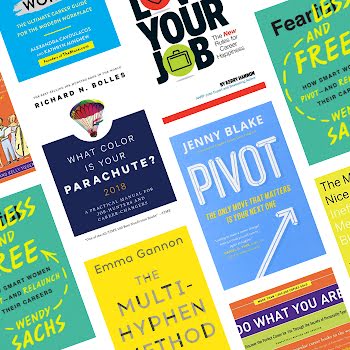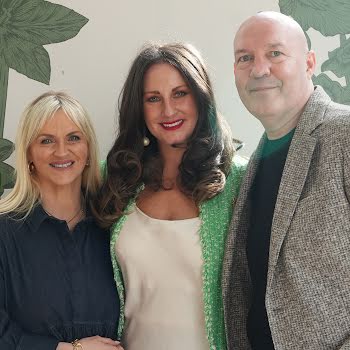
Sponsored
There’s power in failure. Here’s how to embrace it in business and your career
Sponsored By

By Victoria Stokes
29th Apr 2024
29th Apr 2024
Sponsored By

We know the positive mantras but how can we really leverage failure to fuel our success? We talk to a psychotherapist, coach and businesswoman to bring you the best advice
“Success is stumbling from failure to failure with no loss of enthusiasm.”
Sage advice from Winston Churchill, but if you’ve encountered failure (um, who hasn’t, right?) you’ll know it can be hard to get back up and try again.
Failure sucks, so much so that in one poll, respondents said fear of failure was their number one fear, outranking spiders, being home alone and even the paranormal. Most of us will go out of our way to avoid it, but what if, as Churchill suggests, failure is the very thing that propels you forward?
“Failure stings because it defies our expectations. As women in business, we have a drive to achieve and when that is thwarted – however temporarily – the loss of momentum alone is frustrating,” says Kathrine McAleese, an Irish psychotherapist and business and life satisfaction consultant.
It’s tough, but Kathrine believes you can only succeed to the extent that you can embrace failing. The only caveat? You can’t make failure your identity.
Maybe you’re not as good at your job as you thought you were?
Failure often serves as a painful reminder of our infallibility and makes us feel less in control. Perhaps you’ve worked really hard on something and absolutely given it your all, only for it to be dismissed by your peers or tank when it goes to market.
Suddenly, your confidence is rocked and you’re left questioning your abilities. Maybe you’re not as good at your job as you thought you were, you reason.
Sound familiar? Katherine says it’s common for failure to have a knock-on effect on how we see ourselves. “I come across this often where someone has taken ‘I’ve failed at [whatever the circumstance is]’ but internally is feeling ‘I am a failure’.”.
“Failure is an occasion, not an identity so anytime you hear or feel an ‘I am…’ you’ve shifted from talking about what happened, to talking about who you ARE, your identity. That’s dangerous territory.”
When you’re down in the dirt, the last thing you’ll want to hear is that failure can be a blessing, but over the past decade, the idea that failure can be one of our greatest assets – personally and in business – has been popularised with FailFaires held globally by everyone from the World Bank to local grassroots organisations and MeetUps and the publication of books like How To Fail: Everything I’ve Learned From Things Going Wrong and Failosophy: A Handbook For When Things Go Wrong, both by Elizabeth Day.
These books remind us that we often learn the most from our rough patches. Elizabeth hypothesises that failure is an opportunity to regroup, assess what went wrong and, as listeners to her podcast will know, “to build back stronger next time”.
In business that can mean going back to the drawing board and developing a new way to prospect clients, getting fresh perspectives from colleagues and peers so you can finally get that ill-fated project off the ground, or looking at how your personal relationship with confidence and self-doubt may have prevented you from succeeding first time around.
From bust to bossing it
One woman who knows how failure is often our greatest teacher is Jennifer Cairns who launched an ill-fated music platform with her Northern Irish husband, Sean.
“Sean and I ran a tech company and media platform where we filmed live bands and ran digital channels in bars. It was very innovative at the time,” Jennifer says. “We found a private investor for £40k locally and another $350k from US, secured two funding grants, and hired a top web agency in Belfast.
“Fast forward about six months and phase one launched. Should have been a smashing success, right? Wrong. The launch was met with crickets. Total crickets,” Jennifer recalls.
“Despite all our work in the local music scene, they hated the new platform’s name. They didn’t want to use it the way it was designed and really, although it looked fab, there was literally no emotive connection. Add to that, there were issues over contracts that were ‘loose’ at the time the agency started.”
Six months later, Jennifer and Sean lost the business. “Everything we’d put into it, years of hard work, our dreams, and over 60k was gone,” Jennifer says. They were in the depths of failure, but this is when they learned the most about how to succeed.
“This experience is what taught me about the importance of branding. Turns out branding is not a logo, fancy colours or a cool name. Yes, it includes all that but that’s not all it is. It’s something that should be built in a way that emotionally connects with your customers and is a complicated piece of the business as it touches every aspect of it,” says Jennifer.
I never would have learned the skills and gained the knowledge without that experience of failure.
“Our product fell flat because we didn’t understand our customers from all of the right angles, and didn’t create strategy, pricing and communications that connected with them in the right way. For all the money we had and innovative ideas, it was a total flop.”
Jennifer and Sean used these insights to build back better. Failure acted as a catalyst, prompting Jennifer to learn about all things branding and strategy. “That knowledge and the lessons we learned helped me build a successful consultancy that we ran together for 15 years, as well as Rebel World LTD and the Lady Rebel Club – our newest brand which is already winning hearts across the globe,” says Jennifer.
“I never would have learned the skills and gained the knowledge of brand and strategy without that experience of failure.”

Learning to rise
Jennifer’s story shows that failure doesn’t signal the end of your dreams and aspirations – and it doesn’t mean you personally are a failure either. Rather, it shows that failure is merely a stepping stone on the way to success.
Getting back up when you’ve been knocked down is a fine art. Kathrine recommends using one of your greatest attributes as a female leader: the ability to talk through your feelings. “This ability to recognise what you’re feeling and process it means you can move on from it much faster when you hit a roadblock,” she points out.
“Dealing with unhelpful feelings around the failure allows you to move on more quickly and repair what needs to be fixed in light of the failure.”
Next, Kathrine says to embrace failure as data. “If you’ve failed, you’ve just learned something and you can use that information towards future successes” she notes.
Recognising the lesson in failure won’t always be easy or obvious. It might take you a little while to uncover it, but you can speed up the process by keeping a journal. Really dig deep and explore how you can use this experience to your advantage.
Finally, don’t forget to recognise your successes. It’s really easy to fixate on what’s gone wrong, but chances are, you have more to celebrate than you think. “If you’re going to take note of the failures, you better be paying attention to the successes, large and small, along the way. Otherwise, you’re just being a jerk to yourself,” says Kathrine.
If you need a helping hand recognising your successes, consider creating a folder on your desktop that houses every accomplishment and positive bit of feedback you receive. It will put those perceived failures into perspective when you need it most.
Rewiring our brains
This is something IMAGE Business editor and neuroscince-informed coach Leonie Corcoran feels strongly about. “I am not sure where it came from but I was very slow to celebrate my successes,” says Leonie, who is co-founder of The Story Lab.
“Perhaps it was ill-placed Catholic school ‘one better not brag’ feelings or training from my media career, a place where you succeed at putting the newspaper to bed or publishing an article that took hours or weeks of work and expertise, but you move onto the next thing straightaway. Either way, I’m a complete convert and I encourage all my clients to keep a ‘Why I rock’ folder!’ Sharing and celebrating successes is, in fact, it’s one of the elements I build into the architecture of the Group Coaching Circles I run privately and for the IMAGE Business Club members. Why? Because talking about our wins can make us more likely to succeed in the future…and with more ease.”
Leonie encourages clients to ‘edit’ the stories they tell themselves about their so-called failures. “Our attitudes and behaviour influence how we experience life and how we become ‘successful’. Both of these things are heavily influenced by our memories.” She goes on to explain that neuroscience has shown us we can rewire our brains to edit the bad memories so that they don’t hold us back and edit our good memories so that they propel us forward. “Each time we recall something, we change our memory of it which means we can edit our memories. It sounds a little sci-fi but it can yield very positive results and can be fun to do with other people,” she laughs.
Embody the positive feelings of pride or warmth or glee that you get when you experience a success.
“For pesky, recurrent negative memories of failure, try to associate them with something less weighty to, literally, lift the weight off them. Visualise them getting smaller and dimmer and add funny details to your memory. For positive memories, big them up! Imagine them on the big screen and, here’s the clincher, reimagine the feeling they bring you. Embody the positive feelings of pride or warmth or glee that you get when you experience a success. Think of a specific example, close your eyes and embody that feeling. It’s powerful stuff and a great motivator”.
‘Just another occasion’
Leonie echoes Kathrine in the importance of talking about your feelings around failure to reduce the emotional charge that can lead to paralysis in the moment. “As we internalise ‘failed’ efforts to achieve a goal and when we interpret them as personal failure, self-doubt and stress activate and strengthen our brain’s involuntary and reactive neural networks (limbic system). This inhibits the areas of our brain that deal with executive functioning, meaning we become less successful at problem solving and emotional control. This is simply our our physiology, but we can help by talking about the feelings to reduce the stress response and then moving on.”
Failure is simply one of life’s inevitabilities and Kathrine shares the following advice for women in business: “Those who don’t try have failed by default and if you’re a woman in business, then you already have a deep-down grit that got you this far whether you currently feel it or not.”
“So, take heart,” she advises. “Every occasion ends, and failure is just another occasion.”






















